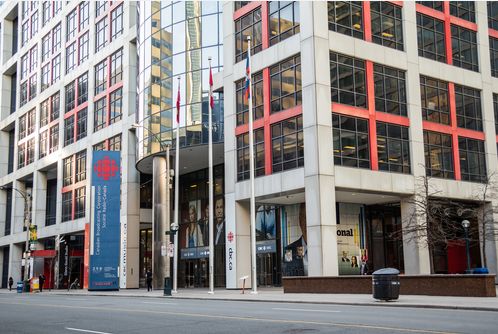CBC proposes ad-free model in Heritage filing

The pubcaster said it should move to a model akin to the BBC, which would require around $400 million in additional government funding.
The CBC has laid out plans that would see the public broadcaster transition to an ad-free model similar to that of the BBC.
In its submission to Canadian Heritage’s “Canadian Content in a Digital World” consultations, the CBC said the removal of advertising “would allow the broadcaster to focus squarely on the cultural impact of our mandate. It would also free up advertising revenue to help private media companies transition to a digital environment.”
In order to make the proposal a reality, the pubcaster said it would need an additional $400 million in government funding.
The CBC filed three key recommendations with Heritage, asking that Canada develop a “cohesive cultural investment strategy” similar to the one that governs the BBC; increase its per-person funding to unlock an additional $400 million to cover an ad-free model; and depoliticize CBC/Radio-Canada funding so that funding is indexed to inflation and not tied to whichever political party is in power.
To the issue of increasing its funding in order to go ad-free, CBC said it would amount to a $12 increase per person annually (to $46, from $34).
As reported in May, CBC/Radio-Canada’s advertising revenues dropped by 53.6% in 2015, moving to $220.1 million, from $474.6 million the previous year. The drop was attributed to the loss of NHL rights.
In its submission, CBC said an ad-free model would result in an ad-revenue loss of $253M to CBC/Radio-Canada, but that two-thirds of that ($158 million) would migrate to other Canadian media, including private TV and digital. The figures supplied by CBC as relates to advertising migration were based on a study from Nordicity.
In terms of a breakdown, CBC said it would require $318 million to exit the advertising business. This figure takes into account the loss in ad revenue ($253 million), as well as an additional $105 million to acquire/produce additional programming to fill the timeslots left vacant by advertising. Also factored in was cost savings associated with no longer having to sell advertising, which CBC pegged at $40 million.
The net benefit of an ad-free model would be a net total GDP gain of $488M, according to CBC, as well as a total labour income increase of $355M and the creation of 7,200 jobs.
Elsewhere in its filing, CBC argued that the conventional TV model is in need of an overhaul.
“The business model and cultural policy framework in which CBC/Radio-Canada operates and carries out its public mandate is profoundly and irrevocably broken,” read the submission.
With ad revenues (that previously went to fund Canadian content) being lost to Google and Facebook, and consumers turning to global content distributors such as Netflix, the new reality of the Canadian ecosystem is increasingly challenging, read the submission. To this, the CBC argued that an update of the Broadcast Act should be explored.
“The Broadcasting Act is from 1991. It does not reflect today’s realities, as is plainly obvious from the fact that half the sector is currently regulated and the other half is not. The Broadcasting Act needs to be updated to allow for a new governance framework for broadcasters so we can evolve in a timely way to the changes and disruptions that are occurring routinely in our sector.”
CBC also argued that it is losing out to private broadcasters due to the fact that 90% of its primetime schedule is comprised of Cancon, whereas other Canadian broadcasters only fill their primetime slots with a small amount of Canadian content.

 The definitive CDN broadcast and production resource.
The definitive CDN broadcast and production resource.










